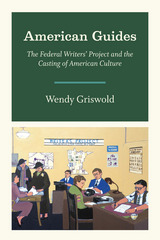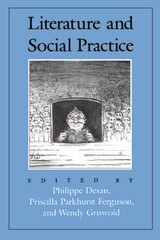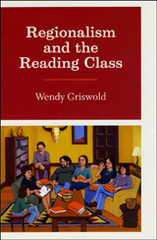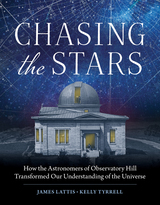4 books by Griswold, Wendy

American Guides
The Federal Writers’ Project and the Casting of American Culture
Wendy Griswold
University of Chicago Press, 2016
In the midst of the Great Depression, Americans were nearly universally literate—and they were hungry for the written word. Magazines, novels, and newspapers littered the floors of parlors and tenements alike. With an eye to this market and as a response to devastating unemployment, Roosevelt’s Works Progress Administration created the Federal Writers’ Project. The Project’s mission was simple: jobs. But, as Wendy Griswold shows in the lively and persuasive American Guides, the Project had a profound—and unintended—cultural impact that went far beyond the writers’ paychecks.
Griswold’s subject here is the Project’s American Guides, an impressively produced series that set out not only to direct travelers on which routes to take and what to see throughout the country, but also to celebrate the distinctive characteristics of each individual state. Griswold finds that the series unintentionally diversified American literary culture’s cast of characters—promoting women, minority, and rural writers—while it also institutionalized the innovative idea that American culture comes in state-shaped boxes. Griswold’s story alters our customary ideas about cultural change as a gradual process, revealing how diversity is often the result of politically strategic decisions and bureaucratic logic, as well as of the conflicts between snobbish metropolitan intellectuals and stubborn locals. American Guides reveals the significance of cultural federalism and the indelible impact that the Federal Writers’ Project continues to have on the American literary landscape.
Griswold’s subject here is the Project’s American Guides, an impressively produced series that set out not only to direct travelers on which routes to take and what to see throughout the country, but also to celebrate the distinctive characteristics of each individual state. Griswold finds that the series unintentionally diversified American literary culture’s cast of characters—promoting women, minority, and rural writers—while it also institutionalized the innovative idea that American culture comes in state-shaped boxes. Griswold’s story alters our customary ideas about cultural change as a gradual process, revealing how diversity is often the result of politically strategic decisions and bureaucratic logic, as well as of the conflicts between snobbish metropolitan intellectuals and stubborn locals. American Guides reveals the significance of cultural federalism and the indelible impact that the Federal Writers’ Project continues to have on the American literary landscape.
[more]

Literature and Social Practice
Edited by Philippe Desan, Priscilla Parkhurst Ferguson, and Wendy Griswold
University of Chicago Press, 1989
"The sociology of literature, in the first of many paradoxes, elicits negations before assertions," write the editors of this volume. "It is not an established field or academic discipline. . . . Yet none of these limitations affect the vitality and rigor of the larger enterprise."
Convinced that literature and society are essentially related to each other, the contributors to this collection attempt to define the various sociological practices of literature and to give expression to this enterprise and the commitments of its partisans. In various ways, the essays assembled here seek to integrate text, institution, and individual (both author and critic) as necessary parts of the analysis of literature. Diverse, sometimes contradictory approaches to literature (Marxism, publishing history, new historicism, and others) are utilized as the contributors explore such topics as text, author-function, and appropriation; the reality of representation; the sociology of exchange; the uses of "serious" fiction; poetry and politics; publishing history; and the literary field.
Convinced that literature and society are essentially related to each other, the contributors to this collection attempt to define the various sociological practices of literature and to give expression to this enterprise and the commitments of its partisans. In various ways, the essays assembled here seek to integrate text, institution, and individual (both author and critic) as necessary parts of the analysis of literature. Diverse, sometimes contradictory approaches to literature (Marxism, publishing history, new historicism, and others) are utilized as the contributors explore such topics as text, author-function, and appropriation; the reality of representation; the sociology of exchange; the uses of "serious" fiction; poetry and politics; publishing history; and the literary field.
[more]

Regionalism and the Reading Class
Wendy Griswold
University of Chicago Press, 2008
Globalization and the Internet are smothering cultural regionalism, that sense of place that flourished in simpler times. These two villains are also prime suspects in the death of reading. Or so alarming reports about our homogenous and dumbed-down culture would have it, but as Regionalism and the Reading Class shows, neither of these claims stands up under scrutiny—quite the contrary.
Wendy Griswold draws on cases from Italy, Norway, and the United States to show that fans of books form their own reading class, with a distinctive demographic profile separate from the general public. This reading class is modest in size but intense in its literary practices. Paradoxically these educated and mobile elites work hard to put down local roots by, among other strategies, exploring regional writing. Ultimately, due to the technological, economic, and political advantages they wield, cosmopolitan readers are able to celebrate, perpetuate, and reinvigorate local culture.
Griswold’s study will appeal to students of cultural sociology and the history of the book—and her findings will be welcome news to anyone worried about the future of reading or the eclipse of place.
Wendy Griswold draws on cases from Italy, Norway, and the United States to show that fans of books form their own reading class, with a distinctive demographic profile separate from the general public. This reading class is modest in size but intense in its literary practices. Paradoxically these educated and mobile elites work hard to put down local roots by, among other strategies, exploring regional writing. Ultimately, due to the technological, economic, and political advantages they wield, cosmopolitan readers are able to celebrate, perpetuate, and reinvigorate local culture.
Griswold’s study will appeal to students of cultural sociology and the history of the book—and her findings will be welcome news to anyone worried about the future of reading or the eclipse of place.
[more]

Renaissance Revivals
City Comedy and Revenge Tragedy in the London Theater, 1576-1980
Wendy Griswold
University of Chicago Press, 1986
Renaissance Revivals examines patterns in the London revivals of two English Renaissance theatre genres over the past four centuries. Griswold's focus on revenge tragedies and city comedies illuminates the ongoing interaction between society and its cultural products. No cultural object is ever created anew, she argues, but is instead constructed from existing cultural genres and conventions, the visions and professional needs of the artist, and the interests of an audience. Thus, every "new play" is in part a renaissance and every "revival" is in part an entirely new cultural object.
[more]
READERS
Browse our collection.
PUBLISHERS
See BiblioVault's publisher services.
STUDENT SERVICES
Files for college accessibility offices.
UChicago Accessibility Resources
home | accessibility | search | about | contact us
BiblioVault ® 2001 - 2024
The University of Chicago Press









